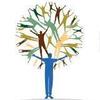Search Results
- All results (2429)
- Customs (9)
- Resources (239)
- Standards (15)
- Organisations (2040)
- News (22)
- Stories (75)
- Quotes (11)
- Guidelines (1)
- Q & A (7)
- Videos (3)
2.1 Freight: Supply Chain Management
Global Hand recommends The Sphere Project's Minimum Standards (Sphere), where applicable to logistics and transportation.
Brothers' Keepers? Media and Forgotten Disasters - February, 2008

Global Hand began this year by attending the International Aid and Trade event in Geneva. Sally Begbie spoke at the meeting on Media and Forgotten Disasters.
Interagency Emergency Health Kit 2006 (WHO, ICRC, MSF, UNICEF, UNHCR & others)

The Interagency Emergency Health Kit 2006 (IEHK 2006) is the third edition of the WHO Emergency Health Kit which was the first such kit when it was launched in 1990. This updated third edition takes into account the global HIV/AIDS epidemic, the increasing parasite resistance to commonly available...
Guiding Principles for Philanthropic Private Sector Engagement in Humanitarian Action

The Guiding Principles for Philanthropic Private Sector Engagement in Humanitarian Action, a crosscutting set of guiding principles, is aimed at fostering commitment from the private sector for preparedness and relief activities. The document lists ten principles for the private sector to follow. ...
Organizational Resilience: Security, Preparedness, and Continuity Management Systems - Requirements with Guidance for Use - American National Standards

Organizational Resilience: Security, Preparedness and Continuity Management Systems - Requirements with Guidance for Use provides an approach for organizations to improve their resilience performance and increase preparedness, according to ASIS.
Updates | ReliefWeb

This useful website by ReliefWeb is a freely accessible on-line database providing information (documents and maps) on humanitarian emergencies and disasters. Depending on a country’s emergency situation, ReliefWeb may post updates on a continuous (24-hour) basis.
An ounce of prevention: The case for Disaster Risk Management - Oct 2008
One dollar spent in disaster prevention, the experts tell us, is worth four dollars spent in disaster response. Business companies have to find the math compelling...
Words into action: a guide to implementing the Hyogo Framework

This Guide has been created to provide advice on useful strategies for implementing the Hyogo Framework for Action 2005-2015: Building the Resilience of Nations and Communities to Disasters (HFA). It represents a distillation of the wealth of experience that exists throughout the world on how to...
Global Hand Principles

Global Hand, and its parent NGO, Crossroads Foundation, aims to ensure that aid given is good aid. You can find a range of standards, specific to sectors of the disaster and development spectrum, in our Standards, Guidelines and Toolkits section. A high level summary of Global Hand's standards...
InterAction's Private Voluntary Organization Standards

InterAction's Private Voluntary Organization Standards is a code of best practice for InterAction's members. The standards relate to the activity of non-profit organisations in areas of governance, volunteer involvement, support from the private sector, fundraising, service and programme...
UNOCHA Regional Office for Asia and the Pacific

Since its establishment in 2005, OCHA’s Regional Office for Asia and the Pacific (ROAP) has sought to minimise the vulnerability of populations in the region to humanitarian crises. ROAP has provided support and assistance to governments, UN agencies, NGOs and other humanitarian actors in response...
Emergency Field Handbook: A Guide for UNICEF Staff

The Emergency Field Handbook is structured around UNICEF’s Core Commitments for Children in Emergencies. These commitments outline the organisation’s role in providing protection and assistance to children and women. They make a clear distinction between life-saving interventions that should be...
Joining Forces for Change: Demonstrating Innovation and Impact through UN-Business Partnerships

Joining Forces for Change: Demonstrating Innovation and Impact through UN-Business Partnerships, a publication by the UN Global Compact Office, presents a case for partnering with the UN in addition to listing case studies of successful UN-business partnerships. The partnerships presented in the...
Joint evaluation of the international response to the Indian Ocean tsunami: Synthesis Report

Joint evaluation of the international response to the Indian Ocean tsunami: Synthesis Report examines the successes and failures as well as the constraints within which the response occurred between the first eight and 11 months of the response. It does this by distilling the findings and learning...
USAID Field Operations Guide for Disaster Assessment and Response
USAID Field Operations Guide for Disaster Assessment and Response contains information on general responsibilities for those responding to disasters, reference material for assessing and reporting on populations at risk, information on working with the military in the field, and a glossary of...
Dubai International Humanitarian & Re-Development Conference & Exhibition (DIHAD) 1-3 April 2012

DIHAD is a humanitarian aid, disaster management and re-development event that takes place in Dubai every year. DIHAD is recognised as the leading humanitarian event in the region and aims to help facilitate a greater and more efficient relationship between aid agencies, NGO's, suppliers and needy...
Information Systems for Crisis Response and Management (ISCRAM)
The Information Systems for Crisis Response and Management (ISCRAM) is a community of researchers, scholars, practitioners and policy makers involved in information management for disasters.
Global Risk Identification Programme: better risk information for sound decision making
Global Risk Identification Programme (GRIP) is a multi-stakeholder initiative that directly aligns with the Hyogo Framework for Action (HFA)'s Priority Area 2: risk identification, assessment and monitoring. Although hosted by the United Nations Development Programme, UNDP, GRIP's structure, is...
Pre-Positioning Product for Rapid Deployment by Abbott and DRI

Abbott and Direct Relief International (DRI) have worked together to expand pre-positioning of supplies closer to those who need them—helping to stockpile supplies first in relief organization warehouses, then in free clinics, and now for local relief partners in high-risk regions of the world.
ITT partners with Mercy Corps to provide emergency relief

ITT Corporation announced a strategic partnership with Mercy Corps as part of its corporate philanthropy program, ITT Watermark. The partnership includes a three-year, $1 million commitment to help provide safe water during emergencies created by natural catastrophes such as floods, droughts and...

